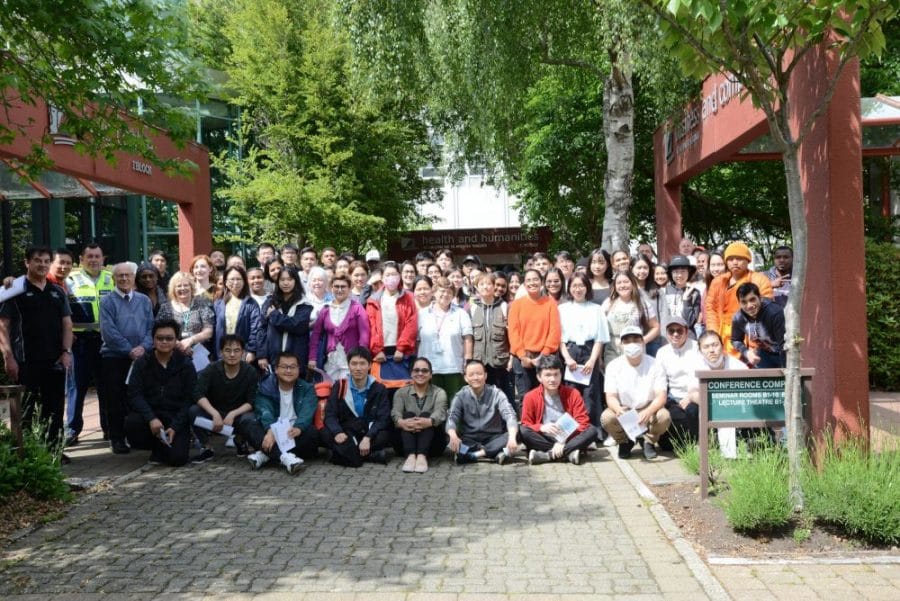
Southern Institute of Technology (SIT) international department recently hosted local New Zealand Police Community Constable, Simon Ballantyne, who gave the latest intake of international students the low-down on staying safe while studying and living in Southland.
After a two-and-a-half-year hiatus, international students have returned to Invercargill in numbers; as part of their orientation, Mr Ballantyne shared some practical advice to the latest intake – around ninety students from forty different countries – on how to navigate some of the differences they would encounter during their time in NZ.
Part of the role is to break down barriers with the students, Mr Ballantyne said. “Police in NZ aren’t to be feared, they are here to help them out.” The overriding message they want to get across is that the police are here for them, he added.
“It’s to let them know who we are and what we do, and give them the confidence to approach us if they need to. We want them to have a great experience in our city and be safe while they’re here… if we can give them the knowledge on how to do that, it’s a win.”
Topics included in the sessions cover what NZ police do in their daily roles, identifying different areas of policing and their functions: front-line police, AOS, detectives, and traffic management.
They discuss road safety, family harm, drugs and alcohol and driver licensing.
“A bit of a hot topic is driver licences and the ability to get around in NZ,” said Mr Ballantyne. Police take a practical approach in dealing with so many nationalities, by providing them a booklet on road safety in NZ which is translated into eleven different languages, “to make it accessible, and help them be aware and au fait with our road rules”.
He added that for many of the students, it’s their first time away from home, so covering relationships and consent is another important area – “there’s a big focus around those points.”
Emergency numbers in NZ and the type of information police will ask if they call 105 or 111, are covered, “really to set their minds at ease”, he explained. “If there’s a language barrier, we have translators available so they can have the confidence to call.”
They also educate on social media, with regards to online bullying and harassment and what constitutes an offence, and giving students the tools to report to Netsafe. They talk about hate crimes, covering race, religion and colour, said Mr Ballantyne. “They can talk to police about that, so they know we do care and are here to look after them.”
Another important topic was around protecting belongings, like bikes, laptops, and vehicles. “If students know how to keep their stuff safe, we’re enabling them to be safe and enjoy their time here… We give them the tools so if they have a problem they know how to respond.”
SIT International Manager (Acting), Michelle Zhao, said SIT’s International team has had a relationship with the local community constable for over 15 years, who presents up to four sessions a year – February and July main intakes, as well as April mid-semester and October/November, before the closing of the academic year.
“The police are very supportive and committed to ensuring all international students feel welcomed and safe while studying in SIT,” Ms Zhao said, adding that the students, in turn, respond positively.
“International students have felt particularly safe whenever the community constable has presented, this definitely adds value to the student experience in Invercargill and Southland, and encourages a willingness to be part of our community.”
Mr Ballantyne summed up the connection NZ police have with SIT as “really valuable, we keep building on a good thing… In my role, I enjoy and value the relationship we have with SIT staff, and being part of their community.”
